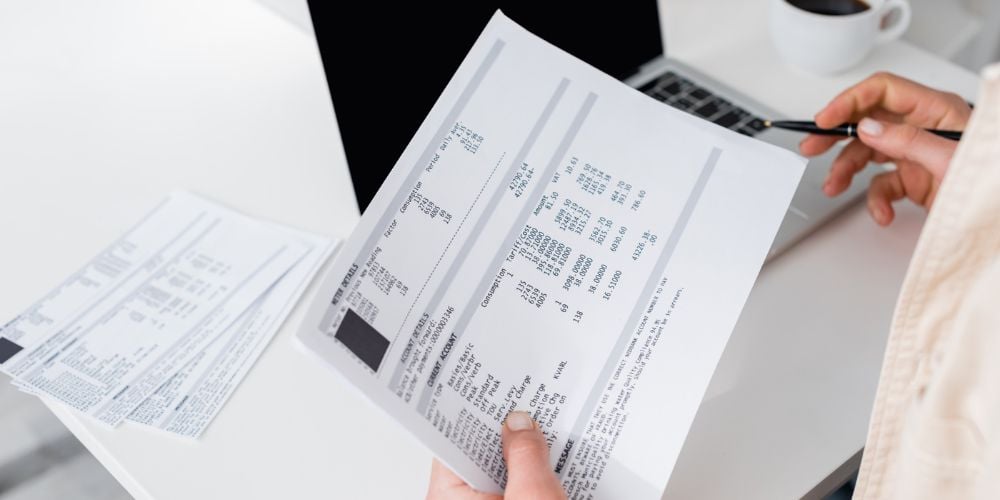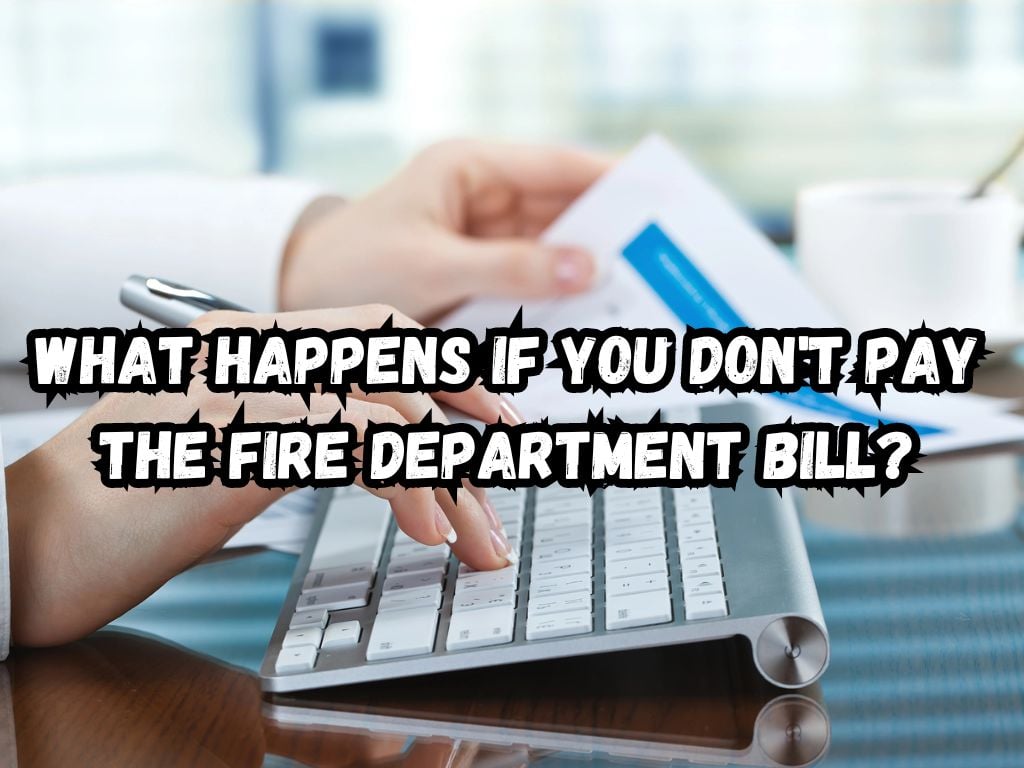In the unwelcome event of a fire, individuals often find solace in the swift response of fire department services. These professionals risk their lives to ensure our safety and property are preserved.
Yet, the aftermath of such emergencies sometimes includes an unexpected, and often overlooked, aspect: the fire department bill. So, what happens if you don’t pay the fire department bill?
This financial obligation can be a source of confusion and stress for many. Ignoring these bills, however, can lead to a cascade of consequences ranging from financial penalties to legal repercussions.
It is essential to understand these implications thoroughly.
What Are Fire Department Bills?
At their core, fire department bills are invoices sent by fire departments to individuals or entities that have benefited from their services.
These services can span from extinguishing a fire at a residence or business to providing emergency medical services on-site.
The rationale behind these charges is based on recouping the costs associated with the highly valuable service provided.
However, being informed about these potential charges and understanding your obligations towards them are crucial steps in responsibly managing such situations.

What Happens If You Don’t Pay The Fire Department Bill? Immediate Consequences of Non-Payment
The first and most immediate repercussion is the accrual of late fees. These fees can quickly add up, compounding the original amount owed.
Another potential, though less common, consequence is the possible impact on future services. While it is against the principles of most fire departments to deny emergency services, ongoing non-payment might lead to administrative hurdles.
These could potentially affect how quickly services are rendered in the future, especially in non-emergency situations.
Legal Repercussions
The legal implications of not addressing fire department bills are more severe and far-reaching. Should the outstanding bills remain unpaid, fire departments, or the governmental bodies overseeing them, may initiate legal proceedings to recover the owed amounts.
This legal action can significantly increase the debtor’s financial burden, adding court costs, attorney fees, and other penalties to the initial bill.
In instances where the court rules in favor of the fire department, the outcome could involve wage garnishment, where a portion of the debtor’s earnings is directed towards settling the debt. Additionally, a lien could be placed on the debtor’s property, marking a significant impact on their financial health and assets.
Long-Term Implications
Beyond the immediate and legal ramifications lies a set of long-term consequences that many overlook. A notable effect is the negative impact on the individual’s credit score.
Once the unpaid bill is reported to credit bureaus, it can significantly diminish the individual’s ability to secure loans, credit cards, and other financial products. This diminished creditworthiness can echo through various aspects of one’s financial life for years to come.
Moreover, a lien on one’s property not only complicates the process of selling or refinancing but also serves as a public record of financial irresponsibility, which can be damaging on multiple levels.
Ethical and Community Considerations
Paying fire department bills extends beyond personal financial implications. There’s a communal and ethical aspect to consider. These payments help ensure that fire departments are adequately funded and equipped to serve the community to the best of their abilities.
Non-payment can strain these essential services, potentially impacting their efficiency and availability when most needed. Thus, settling these bills is as much a contribution to community welfare as it is a fulfillment of a financial obligation.
Upon receiving a fire department bill, prompt action is advisable. If the bill poses a financial challenge, reaching out to the fire department or the billing department as soon as possible can open up avenues for resolution.
Many departments understand these constraints and may offer payment plans or direct those in need to appropriate financial assistance programs.
For disputes over the bill’s validity, initiating a formal inquiry or contesting the charges with the fire department is a constructive step. Clear, honest communication often leads to finding a path forward that works for both parties.

Pro Tips
Managing fire department bills effectively requires a proactive approach:
Insurance Coverage: Always review your homeowner’s insurance policy to understand what is covered regarding fire department services.
You might find that your policy covers these costs, either in part or full.
Understanding Local Policies: Familiarize yourself with the local laws and policies governing fire department billing.
Awareness of local regulations can inform you of potential financial protections, waivers, or assistance programs available to you.
Timely Communication: If facing difficulty with paying a fire department bill, reach out to the fire department’s billing office without delay.
Articulating your financial situation can lead to finding manageable solutions, preventing the escalation of the issue.
FAQs Section
Do I have to pay a fire department bill if I didn’t call for them?
Typically, the responsibility for the fire department bill is associated with the property where the services were rendered, not necessarily the individual who called. Therefore, you may still be liable for the charges.
Can fire services deny me help in the future if I don’t pay my bill?
Fire departments operate on the principle of assisting all individuals in times of need. The denial of life-saving services due to previous non-payment of bills goes against their foundational ethics.
Is Fire Recovery USA a legitimate entity for collecting these bills?
Yes, Fire Recovery USA, among other entities, does manage billing for various fire departments. It’s critical, however, to verify the legitimacy of any billing notice by directly contacting your fire department.
Conclusion
The ramifications of neglecting a fire department bill extend far beyond mere financial inconvenience. They encompass a spectrum of penalties, from accruing late fees to experiencing severe legal actions, and even impacting one’s creditworthiness for a significant duration.
Additionally, there’s a communal responsibility to support emergency services that protect us all. Handling fire department bills with the seriousness and promptness they require not only aids personal financial health but also contributes to the larger community’s safety and well-being.
By applying the insights and tips outlined, individuals can navigate the complexities of fire department bills more effectively, ensuring a resolution that upholds both their financial stability and civic duty.


 Tags:
Tags:










